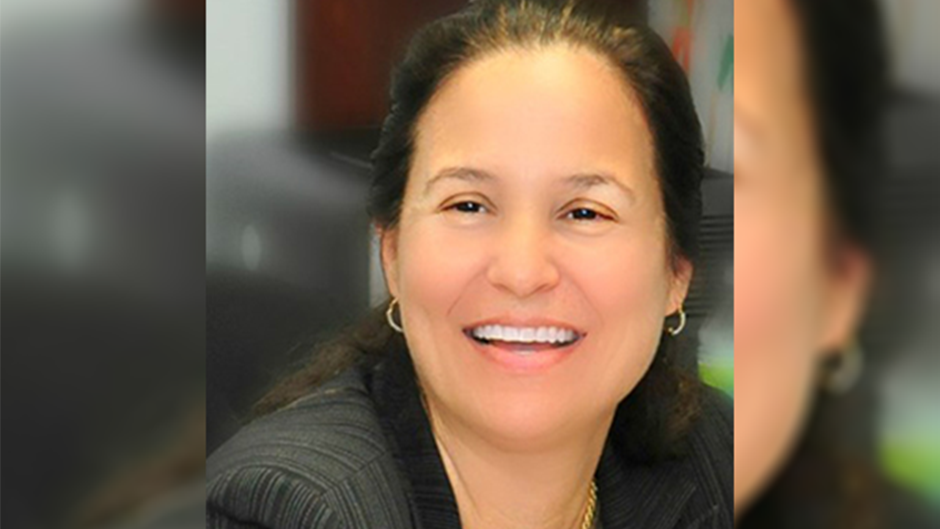Helena Solo-Gabriele, associate dean for research and professor in the Department of Civil, Architectural and Environmental Engineering at the University of Miami College of Engineering (UMCoE), has been elected as a Fellow of the American Society of Civil Engineers (ASCE).
The honor is given to practitioners and educators who have distinguished themselves as mentors and leaders in the civil engineering profession whose impact is felt on a global scale. According to the organization, “ASCE Fellows are individuals who have made celebrated contributions and developed creative solutions that change lives around the world.” The rank of Fellow is a prestigious honor held by less than 3% of ASCE’s more than 150,000 members in 177 countries.
“The Society’s Fellow grade is intended to recognize members who have made celebrated contributions to our profession,” says Josenrique Cueto, director and past president of ASCE Miami-Dade Branch. “The Miami-Dade Branch of ASCE was delighted to have the opportunity to nominate Dr. Helena Solo-Gabriele for this honor. Through her teaching, research and professional service, Helena certainly meets and exceeds the standards. Helena, congratulations on receiving this recognition.”
Solo-Gabriele’s research focuses on problems that relate the environment to public health, and some of her most significant work has focused on arsenic in wood and bacteria in beach sands. Her team has documented the releases of arsenic from a wood treatment preservative called chromated copper arsenate (CCA), the chemical’s inclusion within the wood disposal sector and its inadvertent integration into landscaping mulch. Her team also identified a method of mitigating contamination of recycled wood and developed technologies to identify and sort wood containing CCA during the wood waste recycling process. As a result, the Florida Department of Environmental Protection adopted a guidance document developed by Solo-Gabriele and her research team, which was integrated into the Florida Administrative Code and requires solid waste operators to follow best management practices when recycling construction and demolition wood.
Utilizing her research on bacteria at beaches, Solo-Gabriele’s team documented a new source of fecal bacteria at recreational beaches – beach sand. Her team also has evaluated the mechanisms by which fecal bacteria are accumulated and released from the intertidal zone (the area that is above water at low tide and underwater at high tide). Solo-Gabriele has published papers about what puts beaches at higher risk. She also has identified beach management strategies that minimize sand contamination and contribute towards improved water quality at recreational beaches. In addition, Solo-Gabriele has contributed to an epidemiologic study showing that bacteria sourced from the intertidal zone is correlated with increased disease rates.
Solo-Gabriele continues to make contributions to the environmental engineering field by evaluating human exposure pathways and mitigation strategies for additional contaminants, including the organo-pesticide naled, perfluoroalkyl substances and oil spill chemicals.
At the UMCoE, Solo-Gabriele also teaches courses in environmental laboratory analyses, engineering systems for disease control and bioremediation and senior capstone design. Through her courses, research and professional activities, she has mentored numerous civil and environmental engineers. In her role as associate dean for the CoE, Solo-Gabriele manages research processes throughout the College and coordinates activities to promote faculty research – both individually and in collaboration with each other.
Solo-Gabriele is the former president of the Association of Cuban-American Engineers and prior chair of the Cuban Infrastructure Scholarship Competition, in which students compete to develop innovative solutions to Cuba’s infrastructure needs. She also is the faculty advisor for the UM Chapter of Engineers Without Borders. She has been a professional member of ASCE since 1989 and was a student member prior to that.
Solo-Gabriele earned a bachelor’s and master’s degrees in civil engineering from the University of Miami. She has a PhD in civil and environmental engineering from the Massachusetts Institute of Technology.

